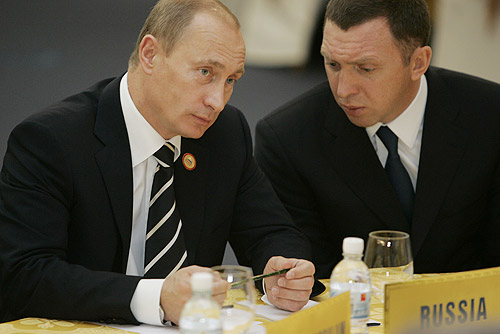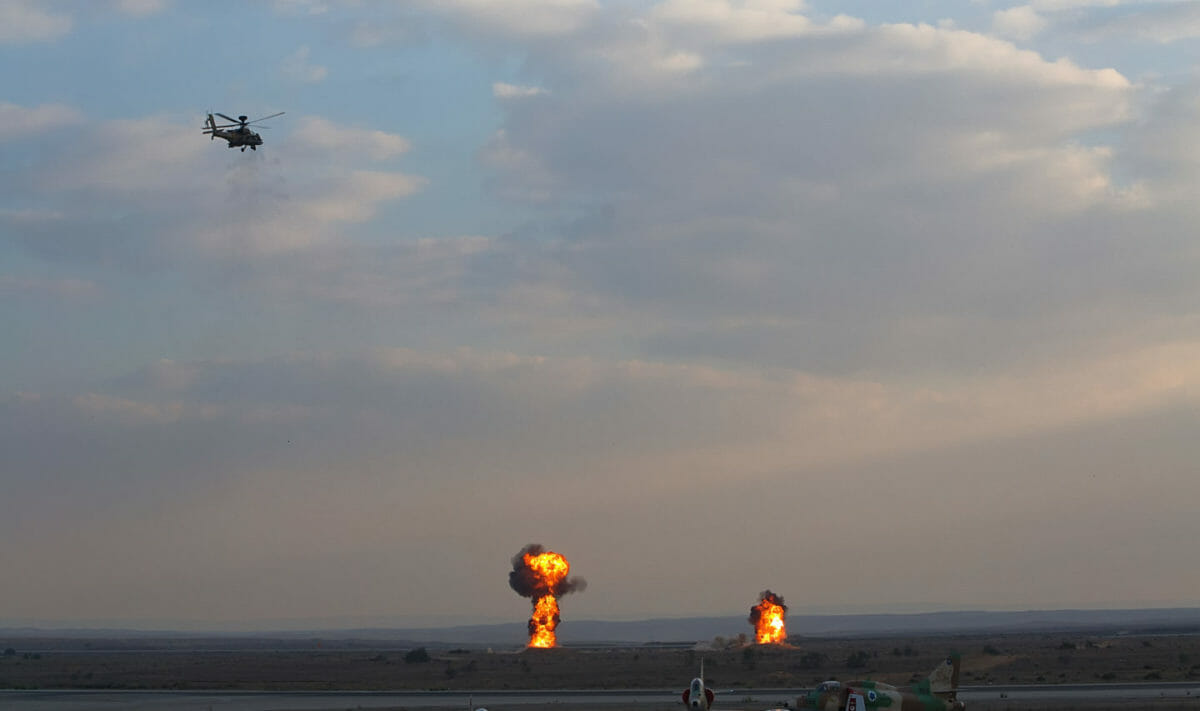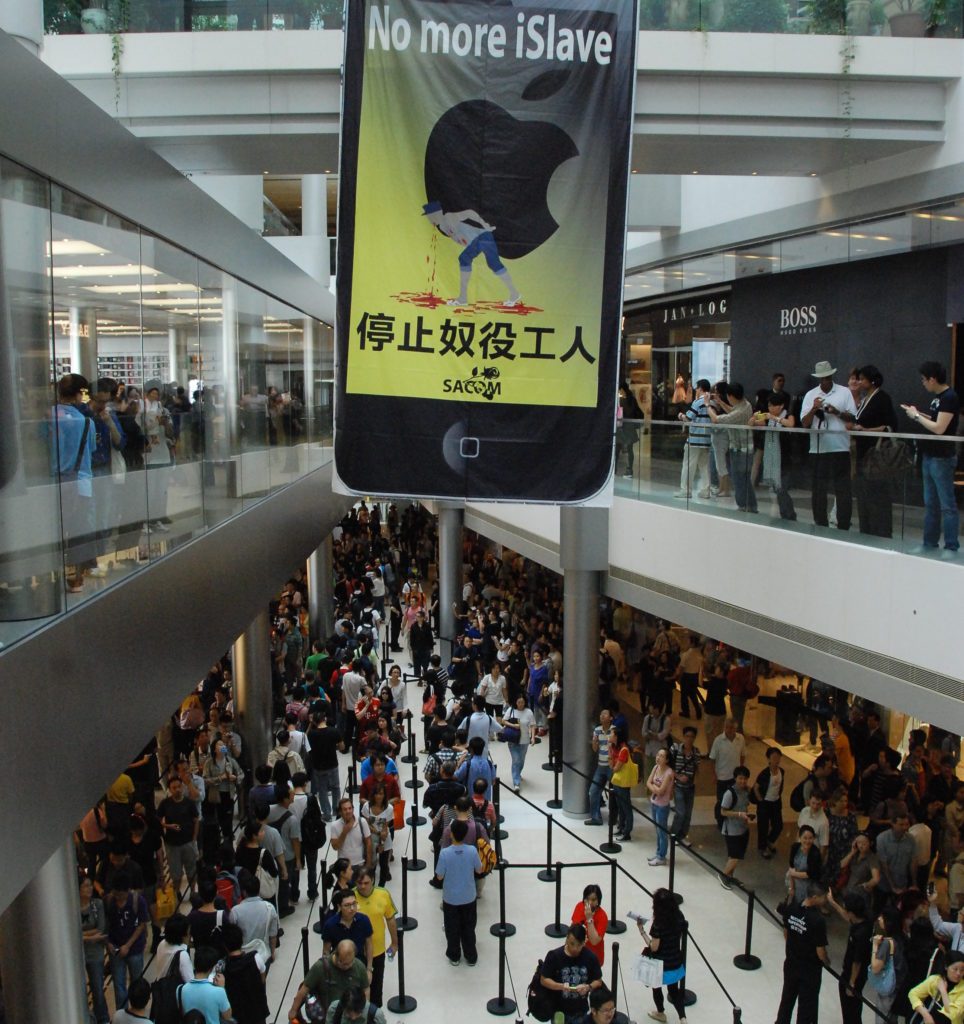The pension fund for Scotland’s MSPs has invested over £100,000 in a Taiwanese company blamed for mass suicides at its factories making iPhones, we can reveal.
The multi-million pound fund, in which 126 of Holyrood’s MSPs participate, has also come under fire for putting £300,000 into Russian companies close to Putin and over £2 million into fossil fuels, arms and tobacco firms. But some MSPs are now pressing for change.
The Taiwanese company tied up with MSP pensions is Hon Hai Precision, better known as FoxConn. It has produced most of the world’s iPhones for the US technology giant, Apple.
Conditions in FoxConn’s huge Longhua factory in China have long been criticised. In 2010, 18 of the factory’s 450,000 workers reportedly tried to kill themselves in protest at their working conditions, and 14 died. Two years later, around 150 workers jointly threatened to take their own lives.
The company reacted by installing suicide nets, hiring counsellors and forcing workers to sign pledges saying they would not attempt to kill themselves.
In 2017, journalist, Brian Merchant, visited the factory. Workers told him that conditions had not improved since 2010 and that suicides were still common. “It’s not a good place for human beings,” one worker said.
The MSP pension fund was set up at the same time as the Scottish Parliament in 1999, and now has assets worth over £81.6 million. It is run by Edinburgh-based private investment manager, Baillie Gifford, and overseen by a board of five MSPs, chaired by Liberal Democrat, Tavish Scott.
Details of its latest investments have been revealed in two reports passed to The Ferret. One is the 2017-18 annual accounts for the pension scheme, and the other is Baillie Gifford’s latest report for the three months to the end of September 2018.
One of the MSPs on the pension fund board is now pushing for reform. “There is a meeting next week and there will be a review of the investment policy,” said Labour’s Pauline McNeill MSP.
“I think there will have to be some review of this. I will raise my concerns at the meeting next week.”
The Green MSP, John Finnie, condemned the conditions reportedly faced by iPhone workers. “It’s increasingly evident that the financial return on investments should only ever be a small part of investors’ considerations,” he said.
“It’s simply shameful to think our monies are propping up these atrocious conditions which deliver the shiny trappings of our western lifestyle. I am sick of hearing about a fiduciary duty when our clear duty is to the well-being of our fellow humans.”
The accounts also show that nearly £300,000 is invested in two companies run by oligarch allies of Russian President, Vladimir Putin: Sberbank and Norilsk Nickel.
Sberbank is Russia’s biggest bank and the government owns 50 per cent plus one of its shares. Its chief executive, Herman Gref, is a former Putin minister who appeared on a US Treasury Department list of Russians close to Putin.
Norilsk Nickel is one of the world’s two biggest nickel companies. Its three largest shareholders are oligarchs who appeared on the US Treasury’s list of Putin allies: Vladimir Potanin, Oleg Deripaska and Chelsea FC owner, Roman Abramovich.
Aluminium magnate, Oleg Deripaska, has been outlawed by the US Treasury, which said he has acted on behalf of the Russian government, holds a diplomatic passport and has been investigated for money-laundering, wire-tapping, extortion and racketeering.

The pension scheme has been criticised for investing £2.15m in companies involved in arms production, fossil fuel extraction and tobacco. This is despite a recent poll of 1,000 Scots showing that 72 per cent oppose investment in these industries.
The four fossil fuel companies are coal miners, BHP Billiton and Rio Tinto, oil company, Royal Dutch Shell and Reliance Industries, an Indian company with a large coal and gas subsidiary.
Friends of the Earth Scotland pointed out that United Nations climate reports had warned of the “devastation” that will ensue if the world does not rapidly move away from burning fossil fuels. “Despite this, fossil fuel companies are still making plans to extract more and more coal, oil and gas,” said the environmental group’s divestment campaigner, Ric Lander.
“MSPs should not sit comfortably when their pensions are funded by companies who have such little regard for our future.” Lander urged MSPs to follow the lead of MPs at Westminster who had backed an end to fossil fuel investment, and others such as the University of Edinburgh and Islington Council who had pulled out of fossil fuel companies.
Three companies that manufacture arms received investments from Holyrood’s pension fund: Ultra Electronics, Meggitt and Rolls-Royce.
Ultra Electronics helps to make the US military’s Predator and Reaper drones used for lethal strikes, causing the University of Edinburgh to withdraw its investment from the company in 2013.
Meggitt has provided data systems for the Israeli military’s Apache gunships and gyroscope devices for Saudi helicopters.

Rolls-Royce, which is a different company to the car manufacturer, makes aircraft engines and the reactors which run Britain’s nuclear submarines, including those armed with Trident nuclear missiles based at Faslane on the Clyde.
Andrew Smith of Campaign Against Arms Trade said: “Public money should be used for the public good, not to bolster those that arm and support dictatorships and fuel and profit from war and conflict around the world. The Scottish Parliament should end its investments in the arms trade, and set the positive precedent of bringing in an ethical investment policy.”
Linda Pearson, from Don’t Bank on the Bomb Scotland, said: “Most MSPs oppose nuclear weapons but their pension fund is still investing in Rolls-Royce, one of the key contractors involved in Britain’s Trident program.”
She added: “The parliament’s pension fund investment in Rolls-Royce demonstrates tacit approval of the company’s nuclear weapons activities. Divestment would send a clear signal that the production of nuclear weapons should cease and would set an example to other organisations in Scotland, such as local authority pension funds and universities, that investment in nuclear weapons is unacceptable.”
Around £266,000 is invested in the world’s second-biggest tobacco company, British American Tobacco (BAT).
In July 2017, the Guardian reported that BAT tried to block attempts by the governments of Kenya, Uganda and other African countries to bring in regulations to limit the harm caused by tobacco. Professor Peter Odhiambo, a former heart surgeon who is head of Kenya’s Tobacco Control Board, said at the time: “BAT has done as much as they can to block us.”
The Campaign for Tobacco-Free Kids blamed BAT for helping to cause a “global tobacco epidemic” killing seven million people a year. “Responsible governments and businesses have no place profiting from the death and disease caused by tobacco companies,” said a spokesperson for the campaign group.
BAT did not reply to a request for comment but has previously told the Guardian: “We take our commitment to the responsible marketing of our products very seriously. We have strict, company-wide marketing principles in place to ensure that our products are marketed responsibly, in addition to adhering to all relevant laws and regulations in the 200 markets where we operate.”
The Labour MSP, Neil Findlay, called for the Scottish Parliament to be an “exemplar” on pension investments. “Some of the investment choices made appear to be with a number of businesses that have came in for serious criticism for their environmental or labour practice,” he said.
“I would hope that those making these investment decisions will look closely at the important issues raised and consider whether these are the appropriate place to invest these funds.”
SNP MPs, Bailie Gifford and Sberbank declined to comment. FoxConn did not reply to a request for comment but previously told CNN after the 2012 mass suicide threat: “The welfare of our employees is our top priority, and we are committed to ensuring that all employees are treated fairly and that their rights are fully protected.”
A Scottish Parliament spokesperson said: “Baillie Gifford was re-appointed in 2011 as the independent fund manager for the Scottish Parliament Pension Scheme (SPPS). It invests parliamentary pension contributions in pooled funds, where the SPPS is only one of a number of investors.
“Under this arrangement the SPPS does not own any stocks, nor can the fund trustees direct where individual investments are made.”
Reports on the Scottish Parliament’s pension fund investments
SP Pension Scheme 2017 18 (Text)
Baillie Gifford Sept 2018 (Text)
The story was published in tandem with the Sunday National. Cover image thanks to SACOM via Wikimedia Commons.














